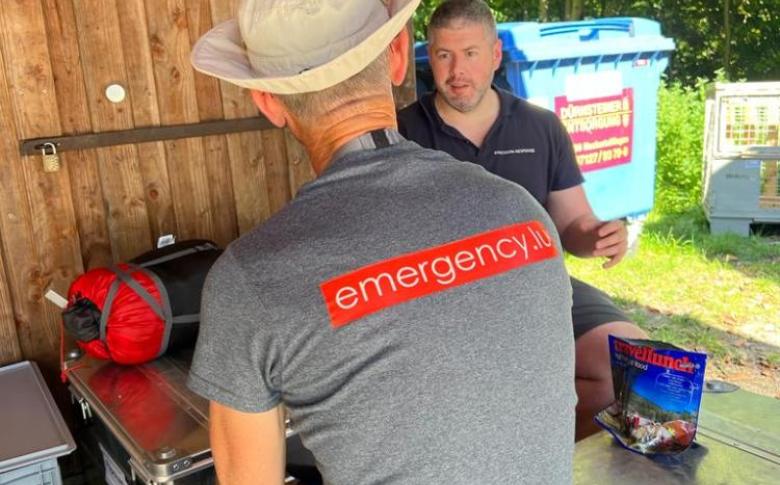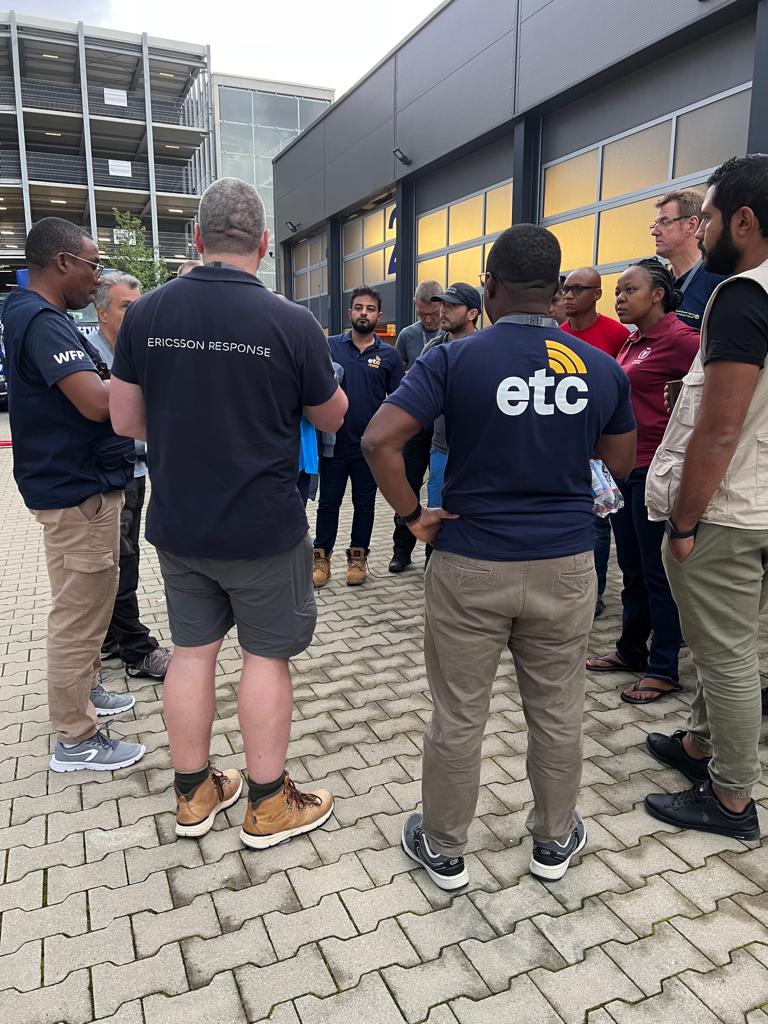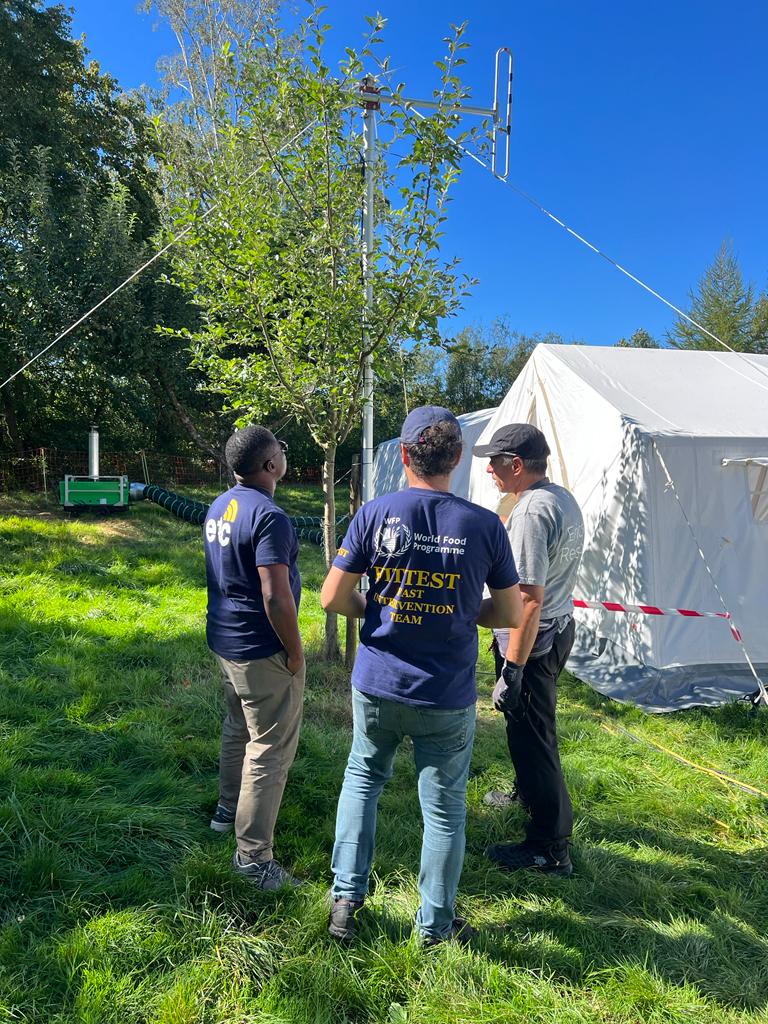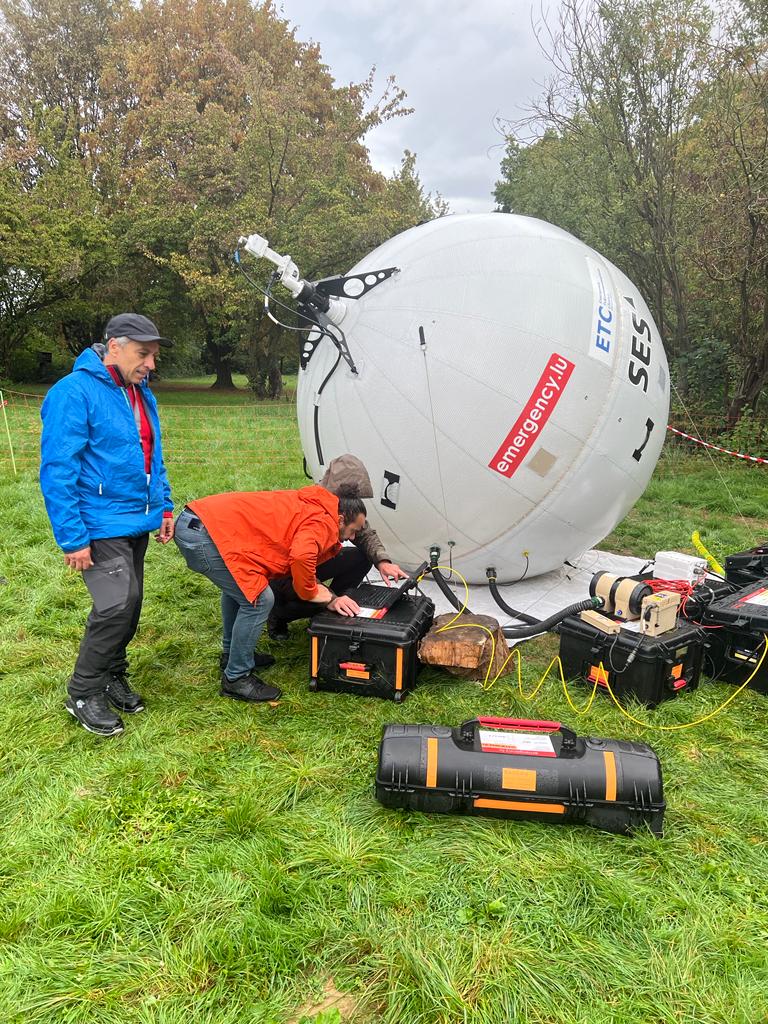ETC supports responders following Tukastan intense earthquake [Simulation exercise purposes]

Lives and livelihoods are on the line in Tukastan. An intense 7.2 magnitude earthquake struck the central region of Ugrigk on 15 September—resulting in the loss of approximately 2,000 lives, 80,000 injured and massive damage to the infrastructure in a radius of 50km from the epicentre. Massive aftershocks keep causing more destruction of the infrastructure and hamper search and rescue missions— to date.

Humanitarian responders mobilized and deployed to Tukastan from 15 September. The Emergency Telecommunications Cluster (ETC) and its Global Partners deployed 19 emergency specialists, split into three teams—to the three surrounding countries of Darzabad, Kivkisia, and Krasnokoma between 15 and 16 September. On 17 September all 19 personnel arrived in Bilasuvar, Tukastan.
The cable running through all humanitarian operations is communications connectivity. In the current digital world, without communications, all humanitarian response systems grind to a halt. Massive telecommunication support is needed for an effective response and ETC has commenced to provide the service in Tukastan.
The ETC is on the forefront in establishing an effective common communication service to ensure delivery of assistance to affected population and safety of humanitarian staff in three priority areas of Akbad, Taldad and Qazurum.

On 19 September the ETC and its global partners—set up, installed, and configured the long range and stable Very Small Aperture Terminal (VSAT) data connectivity for humanitarian responders in Qazurum humanitarian base camp. By 20 September, similar service had been replicated, in Akbad and Taldad to deliver aid to the affected population.
The ETC has also established the security communication systems for humanitarian responders in Taldad and Qazurum on 19 September. The system uses VHF/HF handheld radios for secure voice calls to enhance emergency response and ensure staff security.
By 19 September, 96 humanitarian staff from 26 different organizations—United Nations (UN) agencies, International Non-Governmental Organizations (INGOs) and local NGOs—are using both data connectivity and security communication services. Data connectivity has enhanced communication amongst humanitarian responders and improved service provision to the affected population.

Provision of ETC common services has had varied challenges. At the onset of the emergency, the importation of equipment, lack of access to operational areas, and lengthy deployment authorisations from relevant authorities frequently affects the timely implementation of ETC activities across Tukastan. On 16 September, both telecommunications equipement and food assistance packs were confisticated by customs at the boarder, following some missing paperwork—during initial deployement into Tukastan.
The ETC continues to collaborate with global partners and Tukastan government in response to the earthquake disaster and strive to restore normal day-to-day life.